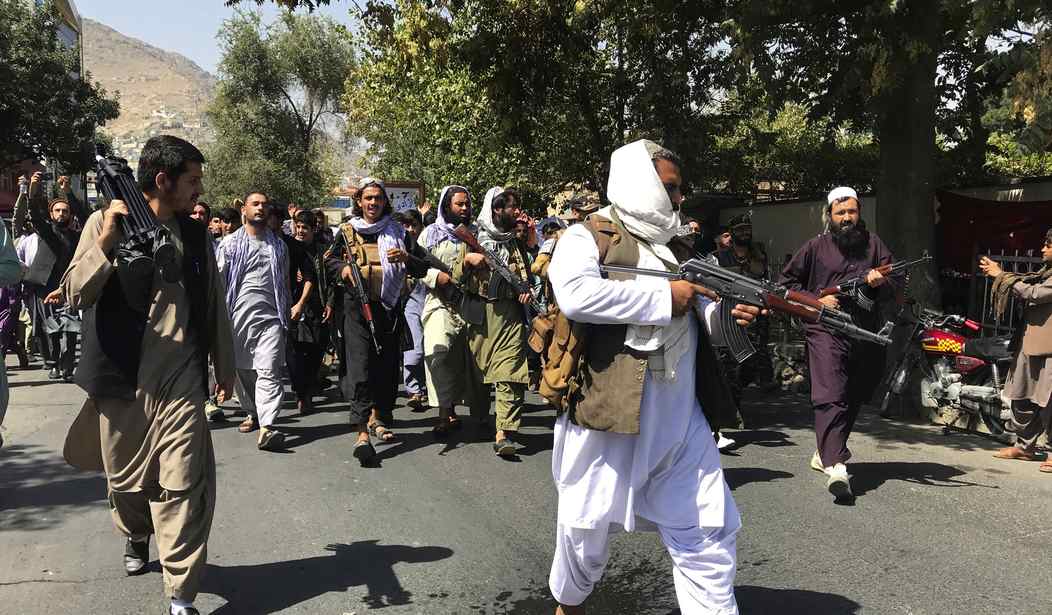On September 8, the Christian Daily International reported that Muslims murdered a Catholic and wounded another while they traveled to a pilgrimage site in Punjab Province, Pakistan.
Afzal Masih and his cousin Harris Tariq Masih were among a group of Catholics who were in a passenger van en route to the annual Feast of the Nativity of Mary shrine in Mariamabad, Sheikhpura District. They were attacked by Muslims with a Kalashnikov assault rifle, said Aurangzeb Peter, a member of the traveling group.
“There were about 12–13 people in the van, including women and young girls of our families,” Peter said. “When we were on the Sheikhupura highway at around 1:30 a.m., three Muslim youths riding two motorcycles started teasing and catcalling our women passengers. They also blocked our way by zigzagging their bikes in front of our van.”
Afzal Masih, sitting in the front seat, asked the assailants to stop harassing the women. The Muslims stopped the van and pulled him out onto the road, Peter said.
“They started beating him with fists and kicks and attacked us as well when we tried to rescue Afzal,” Peter told the Christian Daily International.
When the assailants noticed the posters and crosses pasted on the vehicle and heard that all the passengers were Christians en route to the shrine, they started cursing in coarse language.
“They also called us Chuhra [pejorative term used for Christians] and said how could we dare to call them out,” Peter said.
The assailants left, and the pilgrims resumed their journey. When they stopped at a gas station for a tire pressure check, the three Muslims suddenly reappeared with weapons while Afzal Masih and Harris Masih were standing with the driver. One of them, later identified as Muhammad Waqas of Farooqabad, opened fire with a Kalashnikov assault rifle. He shot Afzal Masih in the neck and Harris Masih in his right arm, Peter said.
Afzal is one of the many victims of Islamic violence against minorities in Pakistan and the wider South Asia region: a subject conveniently ignored by many human rights organizations in the West.
A rare event in Geneva, however, shed light on the increased human rights abuses in Pakistan and the wider South Asia region. On September 24, during the 60th session of the United Nations Human Rights Council, a seminar highlighted the alarming deterioration of Pakistan’s human rights conditions. Organized by the Forum on Inter-Cultural and Inter-Religious Dialogue (FICIR) and the Asian-Eurasian Human Rights Forum (AEHRF), the event convened prominent voices, including activists, journalists, and political analysts, who raised concerns about the erosion of civil liberties and the expanding influence of Islamic radicalism.
During the discussions, participants addressed the causes and consequences of human rights violations in South Asia, as well as Pakistan’s involvement in supporting regional terrorism and Islamism.
Participants also discussed the situation of minorities, media censorship, as well as summary extrajudicial executions in Bangladesh, Pakistan, Myanmar, and (more recently) Nepal. Participants further reported on the continuing impunity for crimes against humanity in Sri Lanka since the end of the civil war in 2009.
Out of all these cases, Pakistan seems to be the most extreme case where the country’s Islamic majority systematically violates the freedom of religion and conscience.
A new report by the Human Rights Commission of Pakistan, entitled Streets of Fear documents the violations related to freedom of religion or belief (FORB) from July 1, 2024, to June 30, 2025. It shows a picture as grim as in previous studies.
According to the report, in Pakistan, religious minorities face marginalization. Their exclusion and ongoing victimization have compelled the minorities to prefer living in tight-knit areas that sometimes resemble slums. In addition, violence against minorities increased during the reporting period. Even Muslims, ex-Muslims, and Muslim minority sects are abused. For example, some are murdered by the Sunni majority simply for not being the right type of Muslims. There have been numerous targeted killings of Ahmadis, a Muslim minority. In one instance, an Ahmadi man was lynched just a short distance from a sizable contingent of police in the middle of a busy market in Pakistan’s largest city.
Places of worship that belong to Ahmadis are often partially or wholly demolished by law enforcement agencies, despite some of them having the protection of a high court verdict. Several incidents of grave desecration that impact those belonging to religious minorities have been reported from all over the country.
Meanwhile, Pakistan’s blasphemy law is misused to settle personal scores or seek financial gain. As noted in a recent report by Human Rights Watch, the “mere accusation of blasphemy can be a death sentence.”
Most alarmingly, two individuals accused of blasphemy were extrajudicially killed by the police while they sought police protection from a hostile mob bent upon lynching them. This casts a shadow on Pakistan’s law enforcement agencies. Both victims were Muslims.
On Sept. 12, 2024, police constable Saad Khan Sarhadi gunned down Abdul Ali, a blasphemy suspect, inside the Cantonment Police Station’s jail in Quetta.
The suspect, a resident of Kharotabad, a neighborhood on the outskirts of Quetta, was detained after a video circulated in which he allegedly made offensive remarks about khatam-e-nabuwat (“finality of [Muhammad’s] prophethood”). A case was registered against him under Section 295-C after the video went viral.
In another incident, Dr. Shahnawaz Kunbhar, an employee of the Civil Hospital, Umerkot, fled to Karachi on Sept. 17, 2024. He was trying to escape being lynched by enraged protestors. A local cleric had accused him of uploading blasphemous content on social media. However, Kunbhar denied the accusations in a video message he uploaded from his hotel.
That same day, law enforcement agencies arrested him. According to the family, this was voluntary, since the police had assured him protection. Later, he was handed over to the Mirpurkhas police.
On September 19, the police announced that Kunbhar was killed in an encounter. The police officers responsible for the killing were hailed as heroes and were garlanded by the local community. The family of the deceased tried to bury his body in Jehanro, a small town 40 kilometers (approximately 25 miles) from Umerkot. However, a large mob armed with “petrol and axes” gathered at the local graveyard and prevented them. The victim’s dead body was also mutilated by the mob when the family attempted to bury him on their ancestral land in the desert.
In addition, during the last quarter of 2024-25, Pakistan watched hearings that were live-streamed, which followed the case of a writ petition filed by the parents of young men and women who were honey-trapped into false blasphemy cases. The hearings revealed that the youngsters were criminally entrapped with the collusion of Pakistan’s Federal Investigation Agency (FIA) officials.
Meanwhile, the pattern of non-Muslim minor girls going missing and then reappearing after a few days, having converted to Islam and “married” a Muslim man, has persisted for years. Hindus in Sindh (who make up 8.8% of the province’s population) and Christians (who constitute 1.9% in Punjab) have repeatedly raised this issue.
In those regions, many minority girls under age 18 were abducted by Muslim men or lured into leaving their homes during the reporting period.
Multiple human rights organizations cite that as many as 1,000 Christian, Hindu, and Sikh girls are annually abducted in Pakistan. Many are forced to convert to Islam and coerced into marriage because it is widely believed in Pakistan that marriages under the age of 16 are acceptable under Sharia law. According to a 2019 UNICEF study, 18.9 million Pakistani women were married before turning 18, and 4.6 million before turning 15, averaging a total ratio of “1 in 6.”
For instance, 14-year-old Chahat, a Hindu girl, went missing in Quetta this past April. A few days after her disappearance, Chahat claimed that it was of her own free will that she decided to convert to Islam and enter into a marriage. However, she made this claim over a video message, raising the possibility of being coerced into making this statement. Additionally, Chahat’s parents presented her birth certificate and B-Form to prove that she was well below Balochistan’s legal marriage age of 16.
In another case, Alina, a 14-year-old Christian girl, experienced a particularly tumultuous year in 2024. Her disappearance from home marked it, her forced conversion to Islam, and her forced marriage to her Muslim abductor. She was rescued from the residence of her abductor and placed under the custody of the Child Protection Unit. Rather than returning Alina to her parents, however, a court ordered that she be returned to the same individual accused by Alina’s parents of abducting her.
In September of 2024, the writ petition in the Islamabad High Court regarding Alina’s case was dismissed. An appeal against the High Court’s decision has since been pending in the Supreme Court of Pakistan for the past eight months. The family is eagerly awaiting this hearing.
Violent hate speech targeting religious minorities and their defenders in Pakistan has also been on the rise. Death threats were directed at the chief justice of the Supreme Court when the court granted bail to an Ahmadi individual. An elected senator was also publicly insulted, particularly by some social media channels, which also questioned his patriotism when he spoke out in defense of religious minorities.
Those systematic and severe human rights abuses against religious minorities in Pakistan are not solely a leadership issue. They are a societal issue shaped by Islamic traditions and a result of full Islamization. Before Islamic armies began penetrating deep into the Indian subcontinent in the eighth century, later taking over and Islamizing its population, the land that is today called Pakistan was part of India and was majority-Hindu.
Pakistan’s current population is overwhelmingly Muslim (around 96%), with religious minorities making up approximately 3-4% of the population.
Pakistan is the ultimate case that demonstrates what happens when a society is fully Islamized. The West, however, instead of challenging Pakistan — particularly for its support for terrorism and ethnic cleansing campaigns against non-Muslims — consistently enables the brutality of Islam in Pakistan and welcomes the same genocidal ideology into its own lands.










Join the conversation as a VIP Member